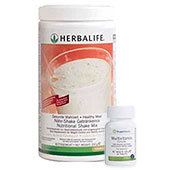Juicing: Is It Good for You? Pros and Cons, Nutrition, and More
Pros:
1. Nutrient-Rich: Juicing can provide a concentrated source of vitamins, minerals, and antioxidants. It allows you to consume a greater quantity of nutrients from fruits and vegetables than you might typically eat in their whole form.
2. Easy to Digest: Juices are easy to digest and absorb, which can be especially beneficial for individuals with digestive issues or limited appetite.
3. Hydration: Juicing can contribute to your daily fluid intake, keeping you hydrated.
4. Convenience: Juicing can be a convenient way to add variety and more servings of fruits and vegetables to your diet, especially when time or accessibility is limited.
5. Lower Calorie Intake: Juices are typically lower in calories compared to whole fruits because some of the fiber is removed during the juicing process. This can be beneficial for weight management.
Cons:
1. Loss of Fiber: Juicing removes most of the fiber from fruits and vegetables. Fiber is essential for digestive health, maintaining blood sugar levels, and inducing satiety. Consuming whole fruits and vegetables is a better way to obtain the benefits of fiber.
2. High Sugar Content: Juicing often concentrates the natural sugars from fruits and vegetables. Consuming large amounts of juice can lead to spikes in blood sugar levels and weight gain.
3. Potential Nutrient Loss: Some nutrients, such as vitamin C and folate, can be lost during the juicing process. Additionally, juicing may not provide all the nutrients found in whole fruits and vegetables.
4. Limited Variety: Juicing typically involves a few specific fruits and vegetables, which limits the overall nutrient diversity compared to consuming a wide range of whole foods.
5. Potential Interaction with Medications: Certain fruits and vegetable juices can interact with medications, affecting their absorption or effectiveness. Consult a healthcare professional if you're taking regular medications.
Nutrition:
The nutritional value of juice varies depending on the fruits and vegetables used. Some common nutrient highlights of juicing include:
- Vitamin C: Juices made from citrus fruits, berries, and leafy greens provide a rich source of vitamin C, which supports immune function and collagen synthesis.
- Potassium: Juices from bananas, melons, and leafy greens offer a good amount of potassium, essential for maintaining electrolyte balance and regulating blood pressure.
- Antioxidants: Juices made from berries, pomegranates, and dark leafy greens are rich in antioxidants that help protect cells from oxidative damage.
Considerations:
- Consume juice in moderation and prioritize whole fruits and vegetables for a well-rounded diet.
- Limit sweetened juices to avoid excess sugar intake.
- Prepare juice at home using fresh produce to ensure quality and control ingredients.
- Avoid adding excess sugar or salt to juice.
Overall, juicing can be a beneficial addition to a healthy diet, but it's important to approach it with moderation and awareness of its limitations. Balancing juice intake with a balanced diet rich in whole foods is crucial to optimize your overall health and well-being. Consult a healthcare professional or registered dietitian for personalized dietary guidance.
-
Am not losing weight at all
QuestionHi, thanks for your time, I have been exercising for the
-
drinks
QuestionMy co-worker is cutting off all beverages with calories.
-
change of diet
QuestionHello Im 17 and tend to binge eat when Im dieting hence I
-
Health supplements for exercising
QuestionHi Dan, First of all, as a fellow expert I must thank yo
-
恰蕸协散 font size=
QuestionWhat are the benifits of apples? AnswerHello, There ar
-
Weekend booze
QuestionTim My husband, 55, is frustrated with his ability to los



